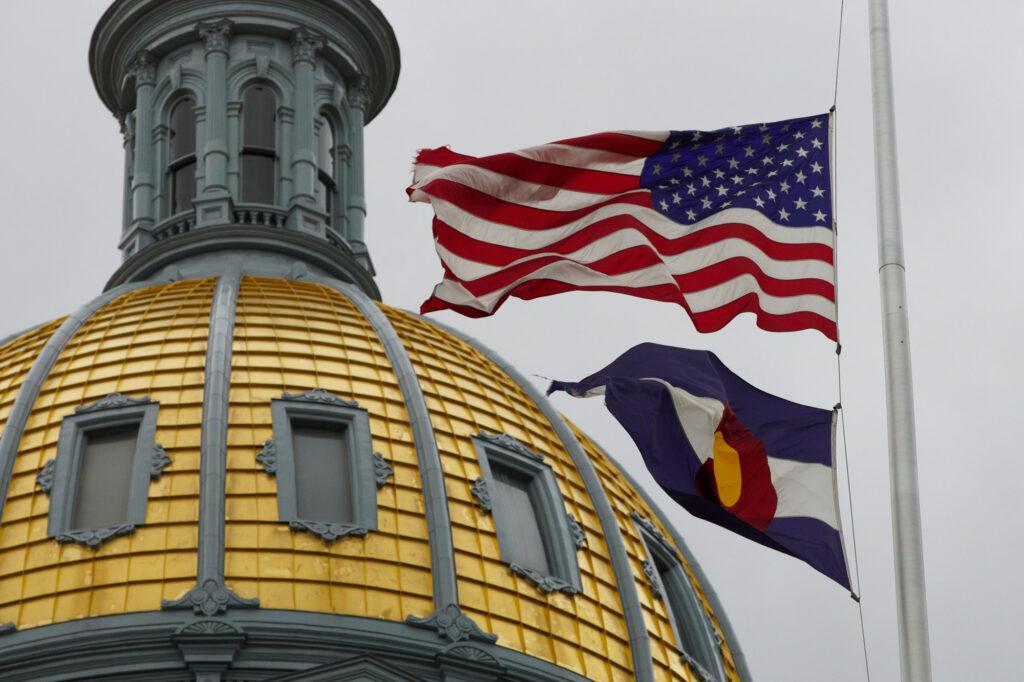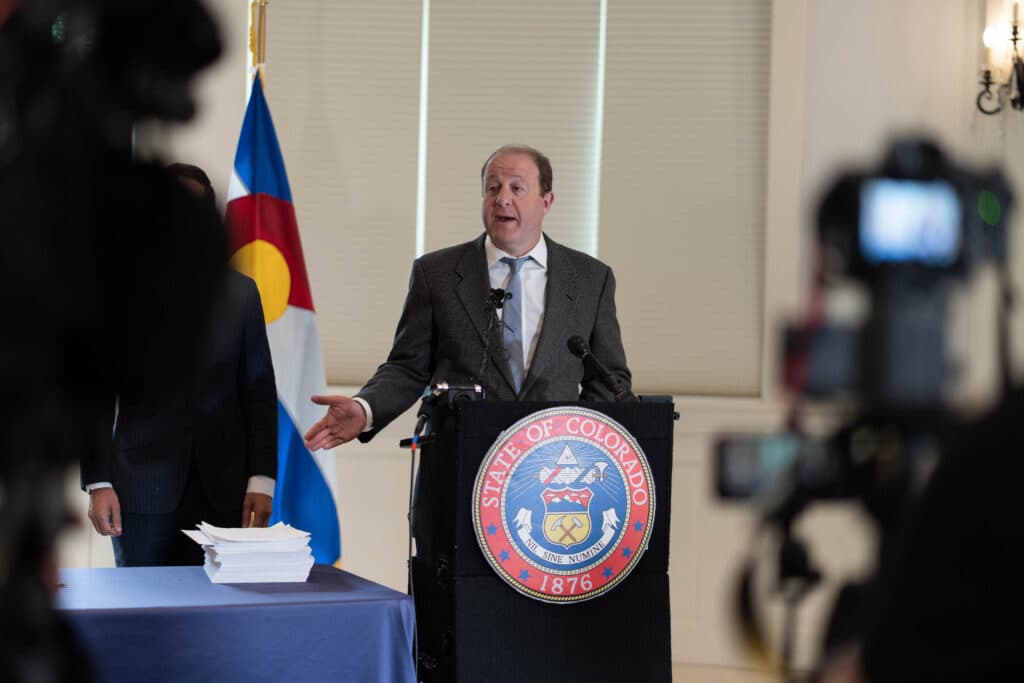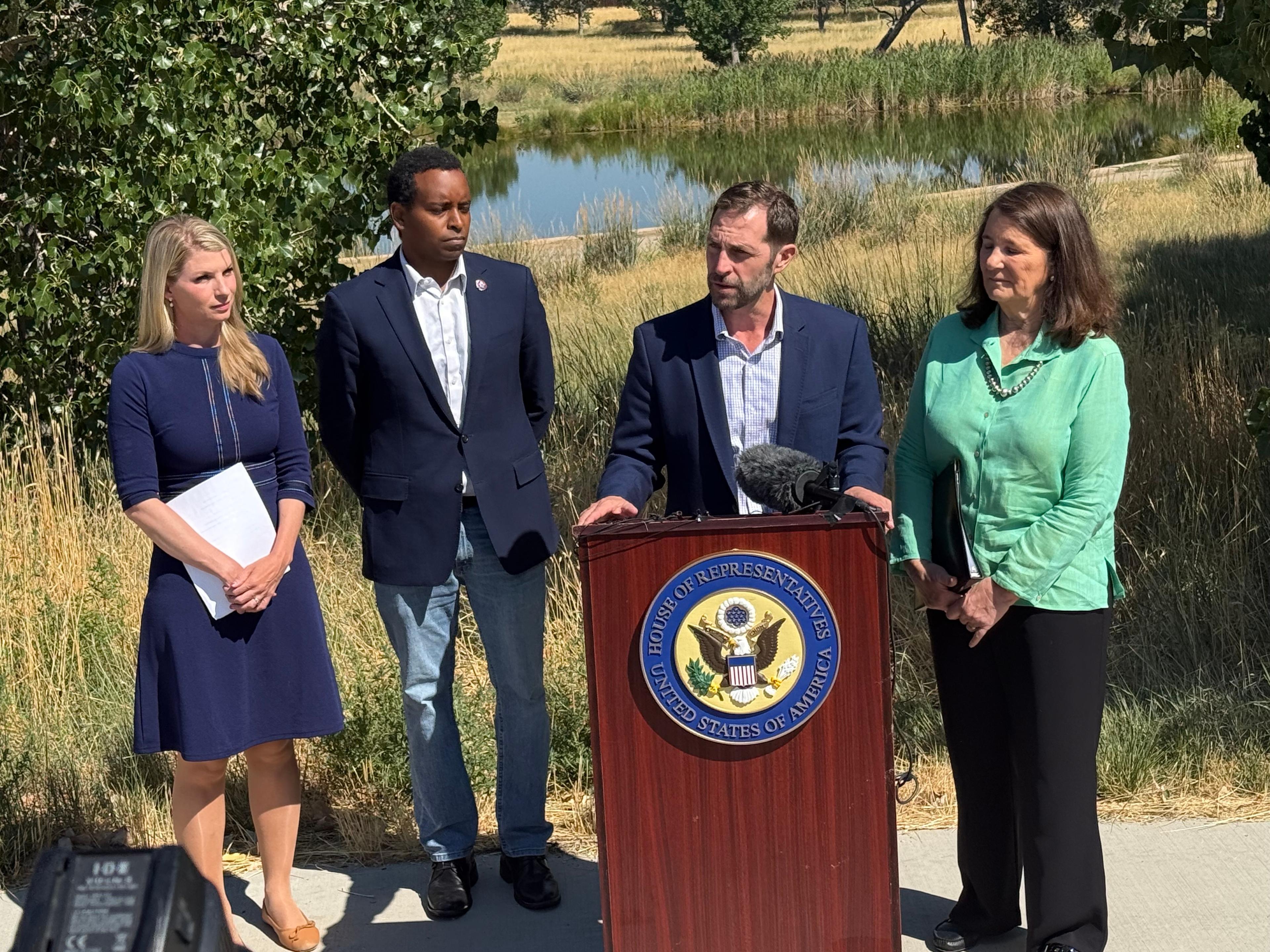
This story was produced as part of the Colorado Capitol News Alliance. It first appeared at coloradosun.com.
Colorado is one of just four states that use federal taxable income to determine how much people pay in state taxes and that have what’s known as “rolling conformity” with the federal tax code.
That’s one of the biggest reasons state economists say Colorado’s tax revenue, and thus the state budget, will be so significantly affected by the passage of the One Big Beautiful Bill Act, the federal tax and spending measure passed by Republicans in Congress and signed into law by President Donald Trump.
Lawmakers must plug an estimated $750 million hole in the state budget when they return to the Capitol on Aug. 21 for a special session as a result of the tax code changes in the measure, also known as the OBBBA.
It’s complicated, but in order to understand Colorado’s budget situation as it pertains to the bill, you have to put on your tax preparer’s hat and dive into the details.
The state budget was balanced until Republicans’ federal tax and spending bill passed
Federal taxable income is calculated by adding up all of the money an individual or a couple earns in a year, including capital gains, minus any investment losses and any standard or itemized deductions. Most states use federal adjusted gross income, which excludes standard or itemized deductions, resulting in a higher income base in determining how much people pay in state income taxes.
For instance, the so-called big, beautiful bill expanded the standard deduction, which will reduce every individual taxpayer’s federal taxable income.
“The impacts of the OBBBA on Colorado’s income tax revenue may be larger as a share of total state revenue than that for many other states because Colorado’s state tax base begins with federal taxable income,” nonpartisan legislative staffers wrote in a document to lawmakers last month. “Most states with an income tax instead use federal adjusted gross income as a starting point. The OBBBA impacts on federal taxable income are much greater than those for adjusted gross income.”
Meanwhile, Colorado’s decision to use rolling conformity with the federal tax code means that changes to the federal tax code immediately affect Colorado’s tax code.

Other states use what’s known as static conformity, means they adapt to the federal tax code, but on a specific date as opposed to immediately. That slows the effect of federal tax changes on their revenue. Some states use selective conformity, which means they only adopt parts of the federal tax code.
The $43.9 billion state budget for the current fiscal year, which started July 1, was passed by the legislature in April. Lawmakers budgeted for as much as they are allowed to spend under the Taxpayer’s Bill of Rights, which caps the annual increase in state spending based on population and inflation increases.
On July 1, the budget was balanced — as is required by Colorado law — with the exception of typical variations caused by tax revenue forecast errors. When Trump signed the bill July 4, the budget became roughly $750 million out of balance because of the projected reduction in tax revenue caused by the measure’s tax code changes.
The governor’s office predicts the bill will reduce the state’s corporate income tax revenue by up to $950 million. Its exemption on income taxes for the first $25,000 on overtime earned by families (or $12,500 for individual tax filers) is expected to result in a hit to state coffers of up to $290 million. That’s a big part of the up to $460 million in projected reductions in state individual income tax collections caused by the federal tax and spending bill.
Nonpartisan Legislative Council Staff believes there will be a slightly bigger revenue impact from individual income tax reductions and a slightly smaller impact from corporate income tax revenue reductions, but they agree with the governor’s office on the size of the tax revenue hit caused by the federal tax and spending bill: $1.2 billion.
After accounting for the TABOR cap on government growth and spending, the impact on the current fiscal year budget is estimated to be between $680 million (per Legislative Council Staff) and $783 million (per the governor’s office).
Could Colorado move away from rolling conformity and federal taxable income?
Colorado has used federal taxable income and has had rolling conformity with the federal tax code for longer than TABOR, which was passed by voters in 1992, has been around.
Colorado lawmakers can try to opt out of parts of the federal tax code, but doing so is complicated and may run afoul of the Taxpayer’s Bill of Rights, which requires voter approval for tax increases.
State Sen. Judy Amabile, a Boulder Democrat who sits on the legislature’s Joint Budget Committee, asked Mark Ferrandino, the governor’s budget chief, last week why Colorado couldn’t move away from rolling conformity.
“It is definitely something that could be done,” Ferrandino said. “It is not something that can be done quickly.”

But Gov. Jared Polis told reporters Wednesday that he’s opposed to changing Colorado’s rolling conformity status.
“We, in my opinion, don’t want to be a state where every individual has to file two entirely different sets of taxes, one for state and a separate one for federal, because there’s different deductions or rules,” Polis said. “That’s an advantage for Colorado. We are not going to become that kind of state.”
The governor said another benefit to rolling conformity is that Colorado taxpayers whose income is below a certain threshold won’t have to pay taxes on up to $25,000 in tips immediately. (That’s expected to reduce tax revenue by up to $90 million in the current fiscal year.)
In 2021, the Tax Policy Center, an initiative of the Urban Institute and Brookings Institution, and the governor’s office gave a presentation to state lawmakers explaining what would happen if Colorado switched to become an adjusted gross income state.
The bottom line: It would exchange simplicity in filing taxes for control.
The move would let lawmakers set new amounts — or eliminate them — for standard deductions, personal exemptions and itemized deductions on the state level. It would also let the Colorado legislature decide whether to continue the pass-through deduction for business owners.
Minnesota and Vermont are states that recently abandoned federal taxable income in favor of adjusted gross income to calculate how much people pay in taxes.
The Tax Policy Center, at the time it presented to Colorado lawmakers, projected that Colorado could increase tax revenue by up to $500 million by switching to adjusted gross income. Depending on how the change was structured, a small fraction of taxpayers could see an increase in their taxes or a majority of filers could pay more.
“There are countless ways you can make this work — depends on what you want to achieve,” the presentation said.
Why other states that use rolling conformity and federal taxable income aren’t facing a similar crisis
Oregon, North Dakota and Iowa are the only other states that used federal taxable income to calculate how much people owe in income taxes and that have rolling conformity with the federal tax code. (Oregon, however, has some variations that make it an outlier among the group.)
Oregon and North Dakota have biennial budgets. Iowa, like Colorado, has an annual budget.
None of those states seems to be having the same five-alarm budget fire as Colorado as a result of the federal tax and spending bill.
The vast majority of the budget in Colorado and Oregon is funded by income tax revenue, which is most affected by the big, beautiful bill. That’s not the case in North Dakota and in Iowa.
But what really sets Colorado apart is TABOR.
In Oregon, North Dakota and Iowa, state lawmakers can raise or lower taxes without a vote of the people. In Colorado, because of TABOR, lawmakers must ask voters to sign off before taxes are raised.
How to close the gap
While it will ultimately be the legislature’s decision on how to close the budget gap, the governor’s office has offered suggestions:
- Draw down the state’s budget reserve by between $200 million and $300 million, which would drop the reserve to no more than 13% from 15%. The reserve is there to cushion the budget when there’s an economic downturn, and economists have warned that even 15% is too low should there be a severe recession.
- To raise revenue, the governor’s office wants the legislature to continue decoupling from the federal qualified business income pass-through exemption for business owners. They also want lawmakers to expand the list of countries where corporations are prohibited from shielding their income from taxes, eliminate a roughly $80 million cumulative tax break provided to insurance companies that have a regional office in Colorado, and remove a tax benefit given to retailers meant to compensate them for the cost of collecting and paying sales taxes. Finally, Polis wants to let some large taxpayers, namely insurance companies, prepay their future taxes in exchange for a discount in future years.
- Cut somewhere in the range of $250 million and $300 million in spending on existing programs and services.
“We are looking at all the options,” Ferrandino said of where the program and service cuts will be made. “Our goal is to protect K-12 education. But outside of that, we’re looking at all options.”

Colorado Capitol Alliance
This story was produced by the Capitol News Alliance, a collaboration between KUNC News, Colorado Public Radio, Rocky Mountain PBS, and The Colorado Sun, and shared with Rocky Mountain Community Radio and other news organizations across the state. Funding for the Alliance is provided in part by the Corporation for Public Broadcasting.









